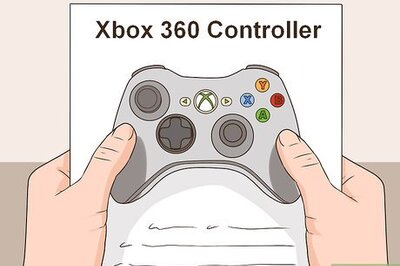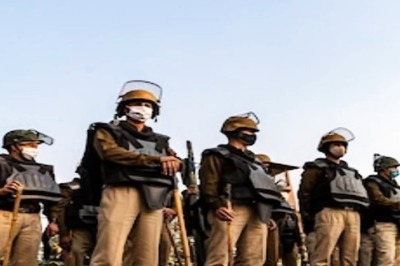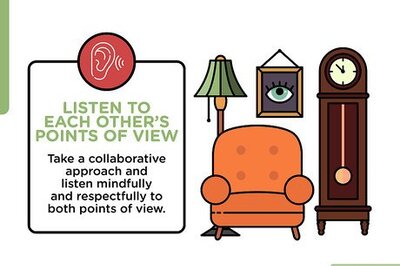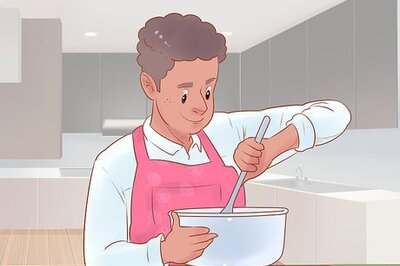
views
Guwahati: If the development plank the Congress rode on in the two previous elections endeared itself to voters in Assam, the near-absence of militancy for a considerable time made the party's position stronger in the 2011 assembly election.
Absence of major militant violence ever since the arrest of top NDFB and ULFA leaders, including its chairman Arabinda Rajkhowa and others, two years ago and their participation in the peace process were evidently given thumbs up by the voters who elected the party to the third consecutive term.
Unlike the earlier elections since 1991 held under the shadow of insurgent violence, the two-phased polls on April 4 and 11 were held peacefully with the major militant outfits like the ULFA and NDFB keeping out of the democratic process and instead engaging in peace talks with the government.
Tarun Gogoi would become only the second person in the turbulent history of the state after Bimala Prasad Chaliha to adorn the chief minister's post for the third consecutive term.
The Congress, which had a vote share of 32.7 per cent in the 2006 assembly polls winning 52 seats in the 126-seat House, romped home to victory bagging 78 seats.
During the last 10 years the astute politician in Gogoi understood the pulse of the people who want only basic amenities for a comfortable life and concentrated on creating the facilities.
His slogan 'raijor podulit sarkar' (government at the doorstep of the people) was an instant hit with the voters.
Gogoi made efforts to introduce novel pro-people development schemes coupled with improved utilisation of funds from the Centre and aggressively implementing its welfare schemes during his two previous terms.
For the AGP, BJP and other parties, their campaign issue of Congress corruption proved a failure and failed to generate a strong anti-incumbency sentiment.
AGP's attempts to forge a grand alliance of opposition parties to free the state from the 'corruption-ridden Congress rule' remained a dream.
Though they had last time won 24 seats with a 25.59 per cent vote share, this time they were reduced to just 10 seats with their president Chandra Mohan Patowary and top leaders losing.
The AGP could not make their connect with the people at the grass root level and take their campaign to the voters by using their support at the panchayat level as they had lost the local elections during the last five years.
Though it had won the assembly elections in 1985 and 1991, the AGP has been on a downslide since 2001 when it was drubbed in the assembly and local body elections due to, what the voters claim, acute financial condition they pushed the state into, rise in unprecedented militancy and lack of job opportunities.
There is also a complaint from the voters that the AGP and BJP busied themselves with allegations against the government and was a "party of leaders with no followers" instead of working for the interest of the people.
The refrain of the voters, particularly women and youths, is: "We have to be pragmatic. We voted for the Congress as they can bring the central development funds to our state as the same party is in power in Delhi also. We want good education and job opportunities, development and peace."
They also voted for the Congress as its government had undertaken schemes for providing housing to the poor, cash assistance to farmers, micro finance for the self-help groups to engage the rural women in employment generation activities and implementation of the NREGA.
The non-Congress voters preference for the ruling party this time over the AGP or BJP was because their children were provided with free education in government schools, no fees for girl child in government colleges at the higher secondary level, free laptops to every student passing the matric exam in the first division and money paid to expectant mothers.
The other contributing factors to the Congress victory were health schemes such as insurance for the below poverty line people, free-of-cost pacemakers in government hospitals to heart patients, free chemo therapy to cancer patients in the state.
The other health benefits included among others, all expenses paid surgery in a Karnataka super-speciality hospital for children with congenital heart problem, setting up of six additional medical colleges with hospitals in the state, payment of daily allowance to the BPL people admitted to government hospitals.
On the other hand, the saffron party BJP, with a 12.07 per cent vote share last time, despite aggressive poll campaigning by its top national leaders' harping against corruption cut no ice with the voters.
Its last tally halved to just five and was completely wiped out in its bastion of Bengali dominated Barak valley. The left parties of CPI and CPM, NCP and local party Autonomous State Demand Committee (ASDC), which had a presence in the last House, were whitewashed.
Trinamool Congress, which swept to power in West Bengal, made an entry into the state's electoral history by winning a seat this time.
Congress alliance partner Bodoland Peoples Front, led by former militant and now a reformed autonomous district council administrator Hagrama Mohilary, won 12 seats fighting on its own.
In 2006, the 11 BPF legislators had supported the Congress to form the government. The minority-dominated AIUDF's ambition to play a kingmaker's role in the event of a hung assembly evaporated with the Congress gaining impressively.
Its tally of 18 seats, all against Congress rivals, improves its assembly electoral debut tally of 10 with a 16.12 per cent vote share in 2006.



















Comments
0 comment